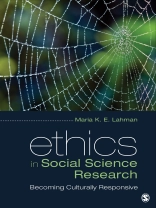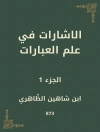Ethics in Social Science Research: Becoming Culturally Responsive provides a thorough grounding in research ethics, along with examples of real-world ethical dilemmas in working with vulnerable populations. Author Maria K. E. Lahman aims to help qualitative research students design ethically and culturally responsive research with communities that may be very different from their own. Throughout, compelling first person accounts of ethics in human research—both historical and contemporary—are highlighted and each chapter includes vignettes written by the author and her collaborators about real qualitative research projects.
Table of Content
Preface
Acknowledgments
About the Author
PART I. BECOMING ETHICALLY RESPONSIVE RESEARCHERS
Chapter 1. Becoming Ethically Responsive Researchers: Introduction
Federal and Discipline Human Research Ethics Adherence
Developing Aspirational Ethics
Book Organization
Elements of the Text
Chapter 2. Culturally Responsive Relational Reflexive Ethics in Research: The Three Rs
Other in Research
Vulnerable in Research
Participant as Capable and Competent, Yet Vulnerable
Creating an Aspirational Research Ethics Stance
Why Create Your Own Ethical Stance?
Exemplar of an Aspirational Ethics Stance
Reflexive Questions
Resources
Chapter 3. Research Ethics History: Regulations and Beyond
A Brief History of Contemporary Western Research Ethics
Research Ethics Boards
Research Ethics Boards (REBs)
Reflexive Questions
Resources
Chapter 4. Research Pragmatics and Methodological Considerations
Informed Consent
Confidentiality
Culturally Responsive Ethical Research Methodology
Reflexive Questions
Reflexive Course Experience
Resources
PART II. EXEMPLARS OF BECOMING CULTURALLY RESPONSIVE ETHICAL RESEARCHERS
Chapter 5. Ethical Research With Children: Always Othered?
Image of a Child
Contemporary Images of the Child
Children as Other
Nature of Adult Memory
Researchers’ Methodological Positioning to Child
Suggestions for Early Childhood Researchers
Always Othered
Reflexive Questions
Reflexive Course Experience
Resources
Chapter 6. Ethical Research With People Who Immigrate: A Stranger in a Strange Land
Humans: A Migratory Species
Current Immigration Contexts
Immigrants
Authors as Immigrants
The Research Contexts We Reflect Within
People Who Are Undocumented
Diversity Immigrant Visa Lottery
International Students: Sojourner Immigrants
Ethical Considerations When Conducting Research With Immigrants
Conclusion
Reflexive Questions
Reflexive Course Experience
Resources
Chapter 7. Ethical Research With People of Diverse Sexual Orientation: Inescapably Othered?
Background
Historical Queer Research Narratives
Ethnography With LGBTQQ+ University Students
Ethical and Methodological Considerations
Inescapably Othered?
Reflexive Questions
Reflexive Course Experiences
Resources
Chapter 8. Ethical Research With People Who Are Homeless: “My Mind’s Not Homeless’
Current Contexts of Homelessness
People Who Are Homeless as Vulnerable Yet Capable and Competent
The Research Contexts We Reflect On
Ethical Considerations
Reflexive Questions
Reflexive Course Experiences
Resources
Chapter 9. Visual and Virtual Ethical Research: Captured Forever
Visual Research
Virtual Research
Internet as a Culture
Our Research Areas
Ethical Considerations
Reflexive Questions
Reflexive Course Experiences
Resources
Epilogue
Appendix A. Research Ethics Sample Syllabus
Appendix B. Research With Native American Communities
Appendix C. Older Age Is a Chronological Part of Life, Not a Vulnerability
Appendix D. Ethics Should Be About Protecting Participants, Not the Research Institution
Appendix E. The Use of the Internet and Skype in Qualitative Research
Appendix F. Reflexive Course Experiences
References
Index
About the author
Maria K. E. Lahman is a professor of qualitative methodology at the University of Northern Colorado, in Colorado, USA. She is the author of the Sage textbooks Ethics in Social Science Research: Becoming Culturally Responsive and Writing and Representing Qualitative Research. A Mennonite, Maria challenges herself to weave aspects of social justice and peacebuilding into her pedagogy and scholarship. Maria′s scholarship is focused on creating ethical solutions for culturally complex methodological situations, diversity, young children, mothering, and qualitative writing representation.












